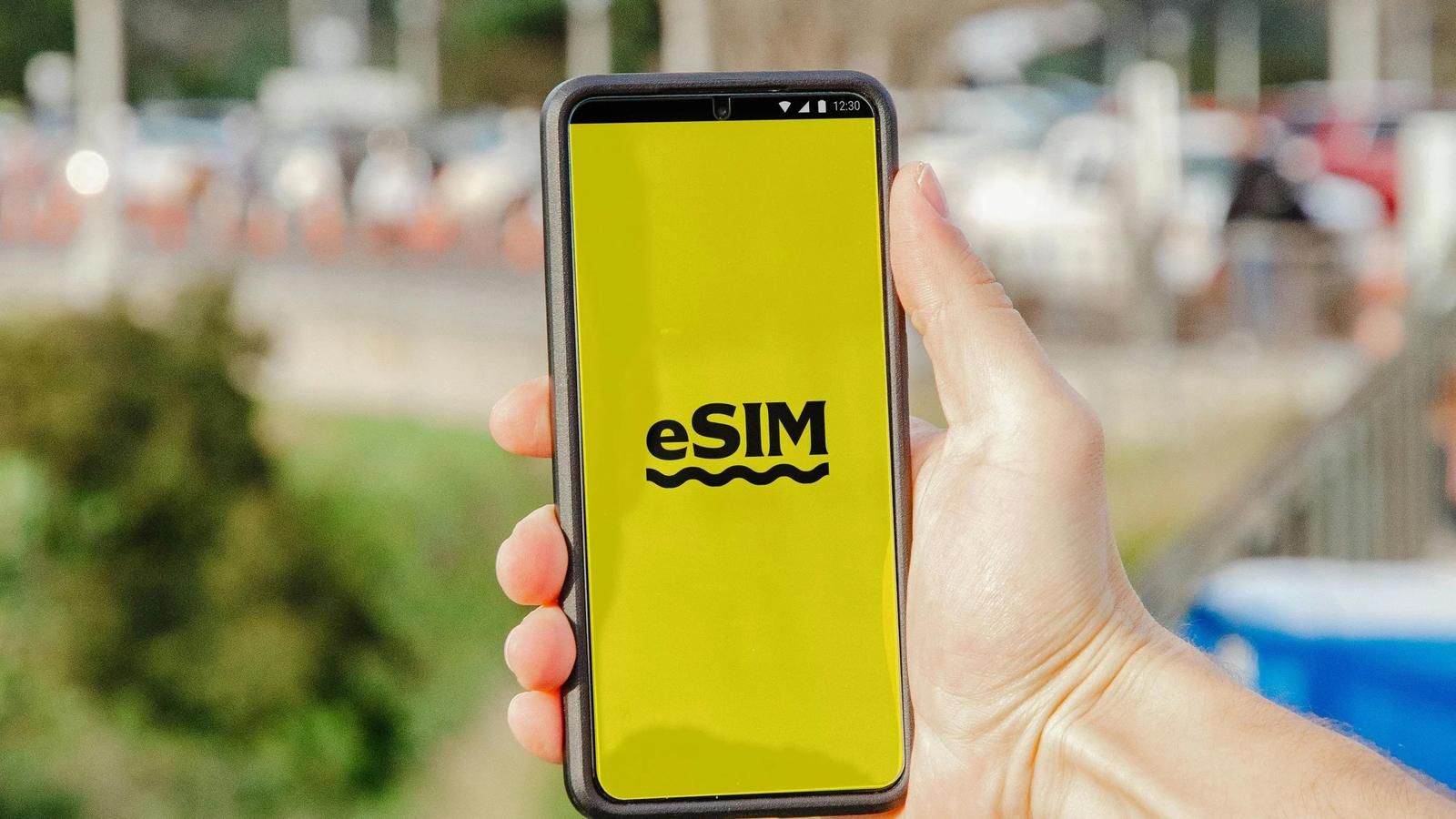You’ve probably heard about eSIM–especially if you travel often. But what is it really? How is it different from a regular SIM card, and why are more and more people switching to it? Here’s a simple breakdown.

What is an eSIM?
An eSIM (embedded SIM) is a built-in SIM card that comes pre-installed in your device. It serves the same purpose as a traditional SIM card: it connects you to your mobile carrier, allowing you to use mobile data, make calls, and send SMS.
But unlike the classic plastic card, an eSIM can’t be removed – it “lives” inside your device. All setup is done through your phone’s settings or a mobile app.
How does eSIM work?
Instead of inserting a physical SIM card, you simply:
1) Purchase an eSIM plan from a provider (online or via app)
2) Receive a QR code or installation link
3) Scan the code or tap “Install Profile”
4) Done – your device connects to the network
You can switch carriers without changing SIM cards – just download a new profile.

Which devices support eSIM?
- iPhone (from XS, XR and newer)
- Google Pixel (Pixel 3 and above)
- Samsung Galaxy (many S, Z, Note, Fold models)
- iPads and some laptops
- Modern smartwatches (e.g., Apple Watch with LTE)
The full list depends on the manufacturer, but most new smartphones today support eSIM.
You can check if your phone supports eSIM here.
Why switch to eSIM?
1) Convenience:
- Takes just 1–2 minutes to activate
- No need to visit a store or insert a card manually
2) Great for travel:
- Get connected before your flight
- Some eSIM plans work across multiple countries
3) Security:
- Can’t be lost or damaged
- It’s your personal profile, protected at the system level

Can you use eSIM and a regular SIM together?
Yes. Most modern phones allow dual SIM usage:
- A physical SIM (e.g., your main number)
- And an eSIM – e.g., with a travel data plan
This is especially handy if you want to stay reachable on your home number while avoiding roaming charges.
You can find the best eSIM option here.
Summary
eSIM is the future of mobile connectivity. It’s convenient, fast, secure – and especially useful when traveling.
If your device supports eSIM, it’s worth trying at least once – chances are, you won’t want to go back to a physical SIM again.
